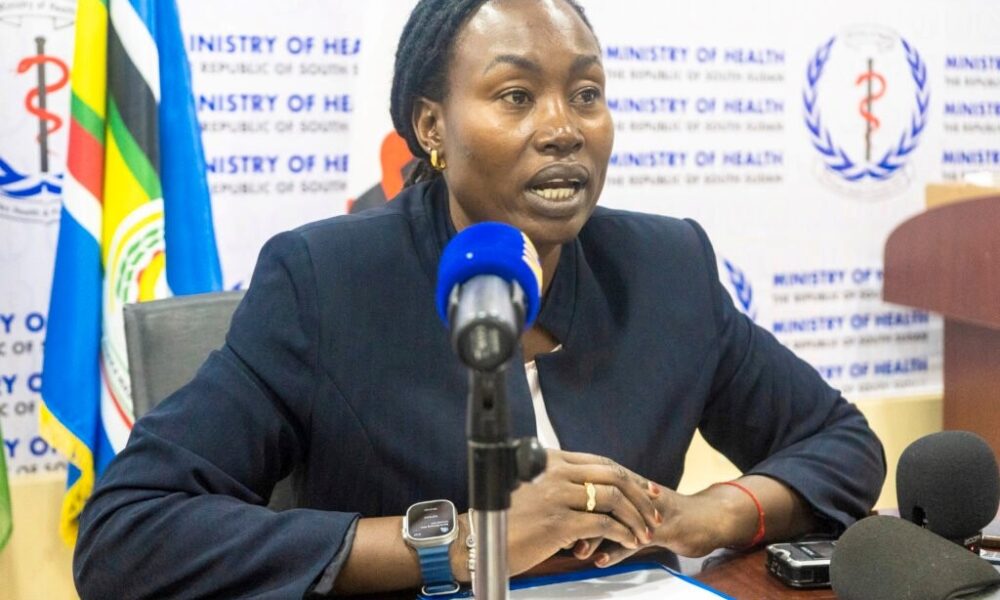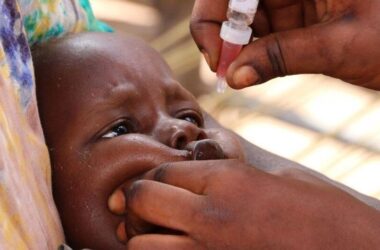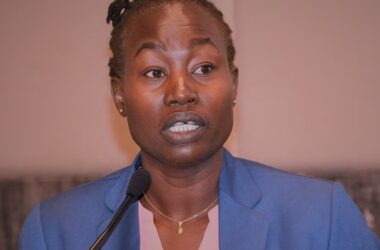By Philip Buda Ladu
The National Ministry of Health has confirmed an outbreak of cholera in Renk County, Upper Nile State.
Yolanda Awel Deng, the National Minister of Health declared the outbreak on Monday, October 28, 2024, following the confirmation of six cases through laboratory testing.
“Since 11th October 2024 up to date, a total of 33 samples of suspected cholera cases have been reported from Renk County of which a total of six cases have been confirmed positive at National Public Health Laboratory,” Awel told reporters in a press conference.
As of 27 October 2024, 49 cholera cases have been reported among refugees, returnees, and local communities.
The first suspected case was reported on 28 September 2024 after the County Health Department received a report of a suspected case of cholera at the point of entry in Renk, a border town between Sudan and South Sudan.
The outbreak has primarily affected individuals aged 15 and above, with a nearly equal distribution between males and females, according to the health authorities.
While no deaths have been reported so far, the Ministry of Health is taking swift action to contain the outbreak.
Awel emphasized that to address the situation, the Ministry has activated an Incident Management System and is implementing several measures, including:
Strengthening Response Interventions by focusing on coordination, surveillance, case management, water, sanitation, hygiene, infection prevention and control, risk communication, community engagement, safe burials, points of entry, and operations and logistics.
Establishing Cholera Treatment Units (CTUs), to provide immediate care for affected individuals.
Developing a Response Plan to mobilize resources and support containment efforts.
Requesting Oral Cholera Vaccines from the International Coordinating Group (ICG) to conduct a reactive vaccination campaign.
Minister Awel further stated that the Ministry, with support from WHO, has already delivered essential supplies, such as rapid diagnostic tests (RDTs), cholera kits, and emergency health kits.
To prevent the spread of cholera, the public is urged to; drink and use safe and clean water, wash hands frequently with soap and clean water, use latrines for defecation, cook food thoroughly and eat hot, peel fruits and vegetables and maintain a clean environment.
The Ministry also urges the public to remain calm and vigilant, reporting any suspected cases to the national outbreak hotline 6666 or the nearest health facility and seek medical attention for symptoms of cholera, which include watery diarrhoea, vomiting, and dehydration.
Mrs. Awel assured that the Ministry of Health is working closely with the World Health Organization (W.H.O) and other partners to implement effective control measures and protect the population.
Dr. Humphrey Karamagi, WHO representative emphasized that the declaration of the cholera outbreak is not a simple issue and business as usual.
He said they have a particular threat which could significantly undermine a lot of the progress that South Sudan has made in the health sector.
“When we look at this from the WHO side we are quite happy with regards to the capacity to pick up the problem” Karamagi said. “I think this is a result of a lot of years of investment by the ministry and the partners in the surveillance capacity.”
WHO officials noted that all the people who have had suspected cholera have recovered and gone home, saying that is very huge positive, which means that there is really something good on the ground in terms of being able to respond to the need.
Dr. Karamagi underlined that the key challenge they need to keep a close eye on is the spread of the outbreak as many of the cases that have been registered so far have been either returnees or refugees from Sudan who moved across the country.
“We are strongly behind that government response” Karamagi added. “My hope is that we will be able to give the people of South Sudan a good Christmas free of cholera.”




